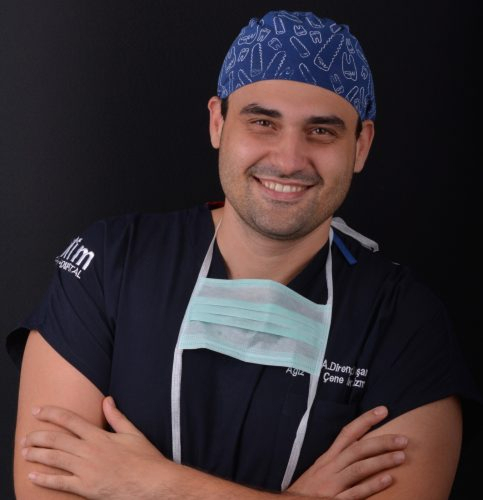
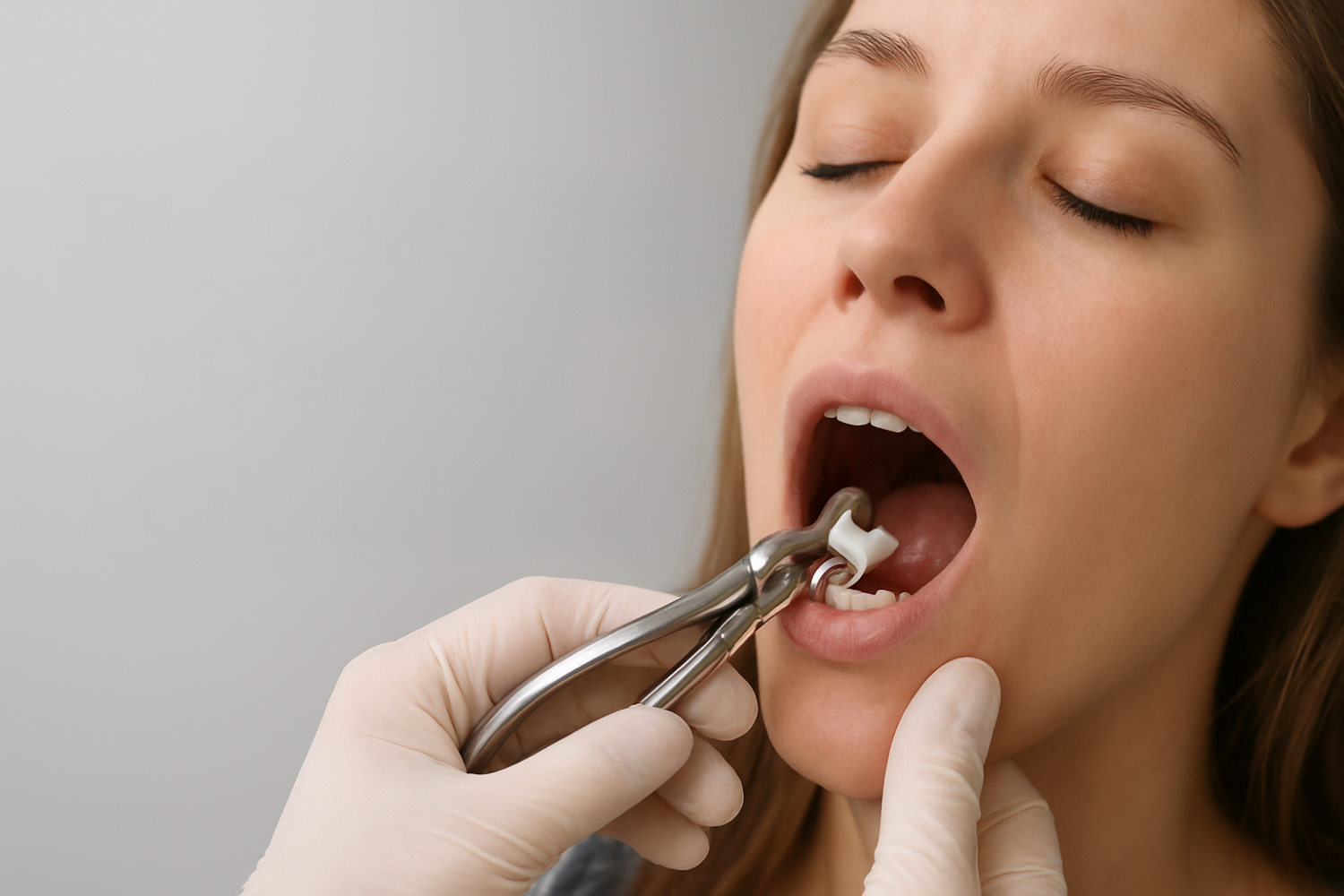
One of the most common and anxiety-provoking questions patients ask before seeing a dentist is exactly this. Especially when it comes to difficult extractions, wisdom tooth surgery, or long procedures, worries like “If I open my mouth too wide, can my jaw dislocate?” or “Can my jaw lock during tooth extraction?” are very common.
In this article, we’ll answer the question “Can your jaw dislocate during tooth extraction?” by explaining, in a clear but informative way: what the jaw joint is, how jaw dislocation happens, whether there is a real risk during extraction, who is more at risk, which precautions your dentist takes, and what you should pay attention to as a patient.
When we talk about our jaw “dislocating” during a tooth extraction, we are actually referring to the temporomandibular joint (TMJ).
This joint is a system that works together with:
When there is a problem in the TMJ, complaints such as:
may appear.
A jaw dislocation occurs when the lower jaw moves forward out of its normal position in the joint socket and gets “stuck” there.
Normally, when we open our mouth:
In a jaw dislocation:
Typical signs of jaw dislocation (mandibular dislocation):
This condition is called mandibular dislocation in medical terms and usually requires urgent intervention.
Now to the main question:
“Is it possible to experience a jaw dislocation during tooth extraction?”
Theoretically, yes, it is possible, because during a tooth extraction:
and all of these can put some strain on the jaw joint.
However, in practice, in healthy individuals and under the control of an experienced dentist, jaw dislocation is an extremely rare complication during tooth extraction.
So instead of being afraid that “my jaw will dislocate” in every extraction, it is much more realistic and protective to:
The risk is not the same for everyone. Some people are more prone to jaw dislocation.
In a patient who has had a jaw dislocation in the past:
In this case, it is important that the dentist:
Some people have looser connective tissue due to genetic or systemic reasons:
In such patients, the TMJ may also be more easily affected.
Conditions such as:
can make the jaw joint more sensitive during tooth extraction.
Especially in cases like:
the mouth may need to be opened wider and the procedure can take longer.
In such situations, the dentist:
to both make the extraction easier and protect the jaw joint.
For an experienced dentist, protecting the TMJ is a natural part of tooth extraction.
Before extraction:
are used to examine the root structure of the tooth, bone density, and nearby anatomical structures.
This allows the dentist to plan:
During tooth extraction, the dentist:
During long procedures:
Especially in lower molar extractions:
This support:
During tooth extraction:
Incorrect force application can:
Therefore, experience and proper technique directly reduce the risk of jaw dislocation.
Although very rare, a jaw dislocation can occur during a tooth extraction or any long procedure with prolonged mouth opening.
In that case:
Jaw dislocation can usually be reduced (put back into place) in the clinic by the dentist or oral surgeon using special maneuvers.
During this process:
After the jaw has been repositioned, it is usually recommended to:
Protecting the jaw joint requires teamwork between dentist and patient.
Before a tooth extraction, be sure to tell your dentist:
This information helps the dentist decide:
During long extractions or surgeries:
In that case:
In daily life:
already overload the jaw joint.
If you have such complaints:
Not every jaw pain means dislocation. After an extraction:
are common and usually temporary.
When should you suspect a serious joint problem or dislocation?
You should contact your dentist if:
In such cases, you should contact the dentist who performed the extraction or the nearest emergency/oral surgery clinic.
Theoretically yes, because mouth opening involves the jaw joint.
In practice, in healthy individuals, the risk is extremely low. Most extractions are completed within a few minutes without any joint issues.
Impacted or partially impacted wisdom tooth extractions often require:
which increases the load on the jaw joint. However:
still make jaw dislocation a very rare event.
If you have such complaints:
Your dentist may:
If there are no additional joint complaints, usually no special action is needed. But if:
you may temporarily:
In summary:
Tooth extraction is usually a necessary and controlled procedure to protect your oral health. The fear of “Will my jaw dislocate during extraction?” often grows out of the combination of pain anxiety and fear of the unknown.
Keep in mind:
If you have:
make sure to tell your dentist in detail before any extraction or other dental treatment. If needed, planning can be done together with an oral & maxillofacial surgeon or TMJ specialist.
This article is for general information only and does not replace a personal clinical examination. If you have a specific concern or symptom related to your jaw joint, consult a dentist or jaw specialist so that both your extraction process and your TMJ health can be managed safely.
What are the key symptoms and risk factors for oral cancer, and why does early diagnosis save lives? Learn when to take unusual changes in your mouth, tongue, and lips seriously and understand the importance of routine screening.
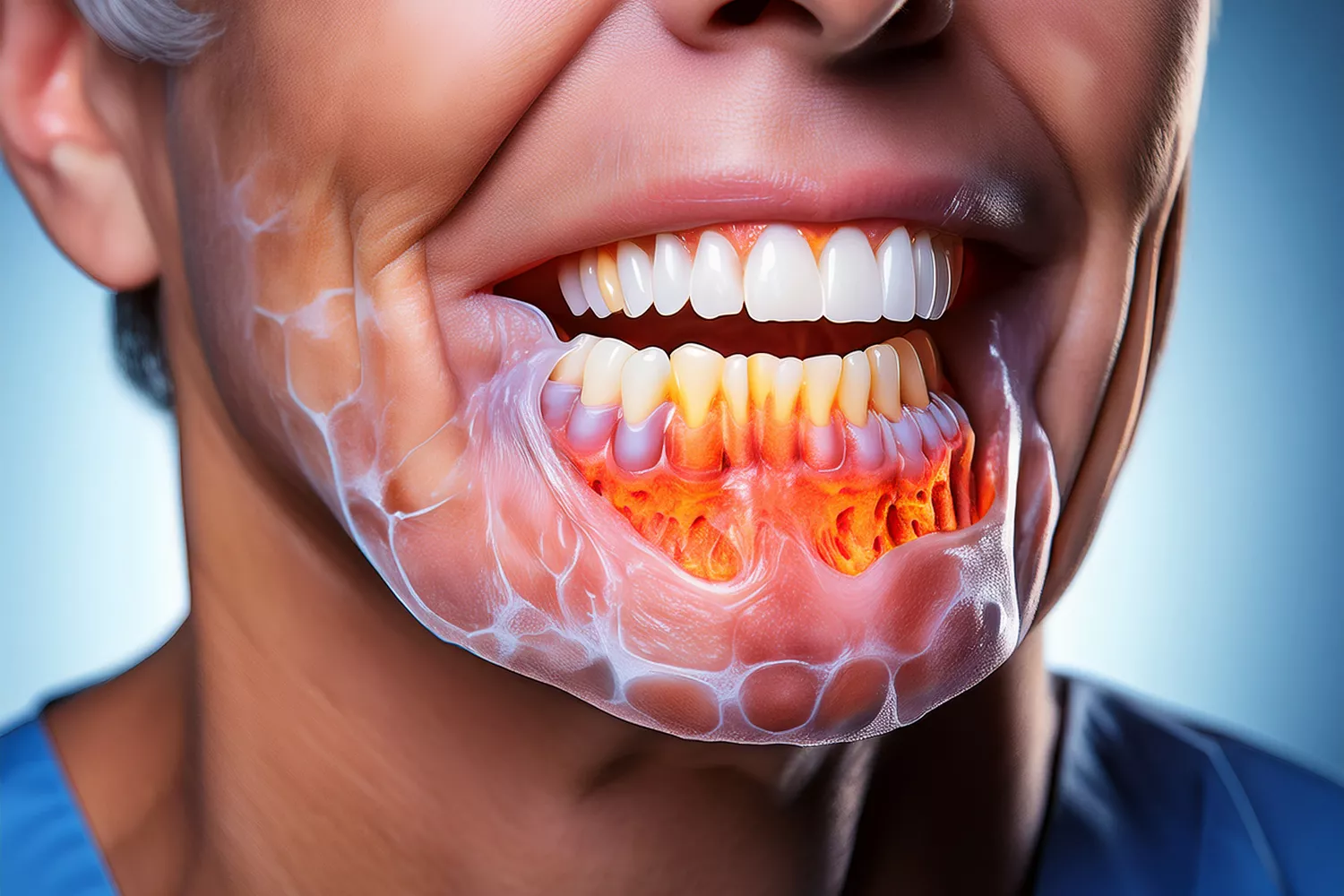
Orthodontics is a branch of dentistry that focuses on diagnosing and treating structural irregularities in the teeth, jaw, and facial area. Orthodontic treatment helps guide the dental and jaw development of children, ensuring proper tooth eruption. In adults, it corrects existing structural problems such as jaw misalignment, bite issues, and gaps between teeth.
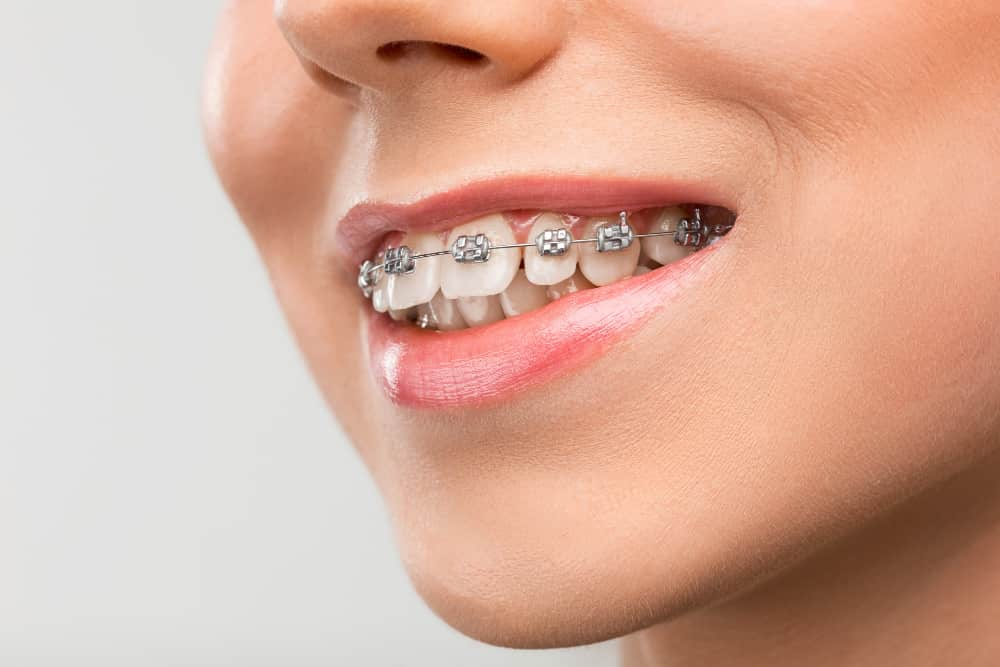
How to choose a safe and reliable dental clinic in Turkey? Learn critical factors for international patients, including checking surgeon expertise, sterilization standards, official certifications, and seeking genuine patient testimonials before starting your treatment.

Milim Dental Hospital isn't just a clinic—it's where confident smiles begin. With a team of world-class specialists, advanced technology, and a patient-first approach, we turn dental care into a premium experience.
We prioritize hygiene, comfort, and tailor-made treatments designed just for you. Don’t just take our word for it—explore real stories from real patients.
Your perfect smile starts here. Join the Milim experience.
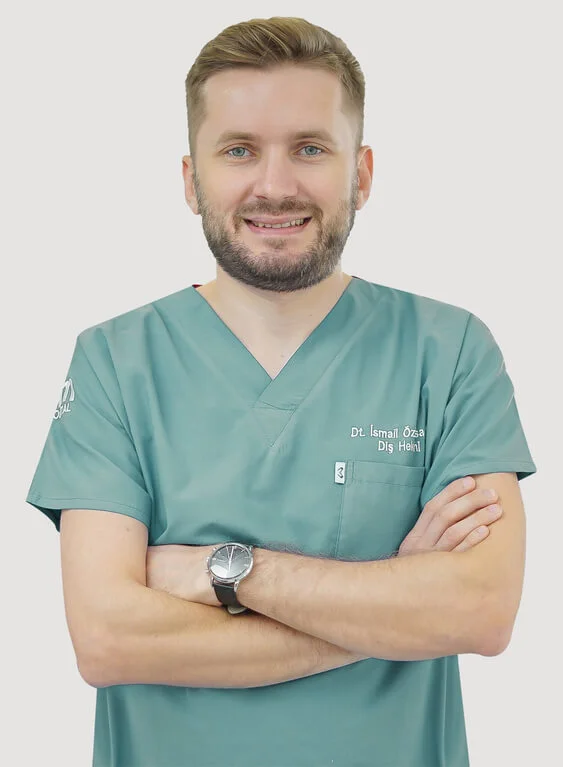



Milim Dental Hospital provides comprehensive dental services in a spacious 1,000 m² facility, supported by a wide team of dental professionals including specialists in Oral and Maxillofacial Surgery, Prosthodontics, Orthodontics, Pediatric Dentistry, and Periodontology.

Would you like to see real patient results? Feel free to explore our Case Gallery!